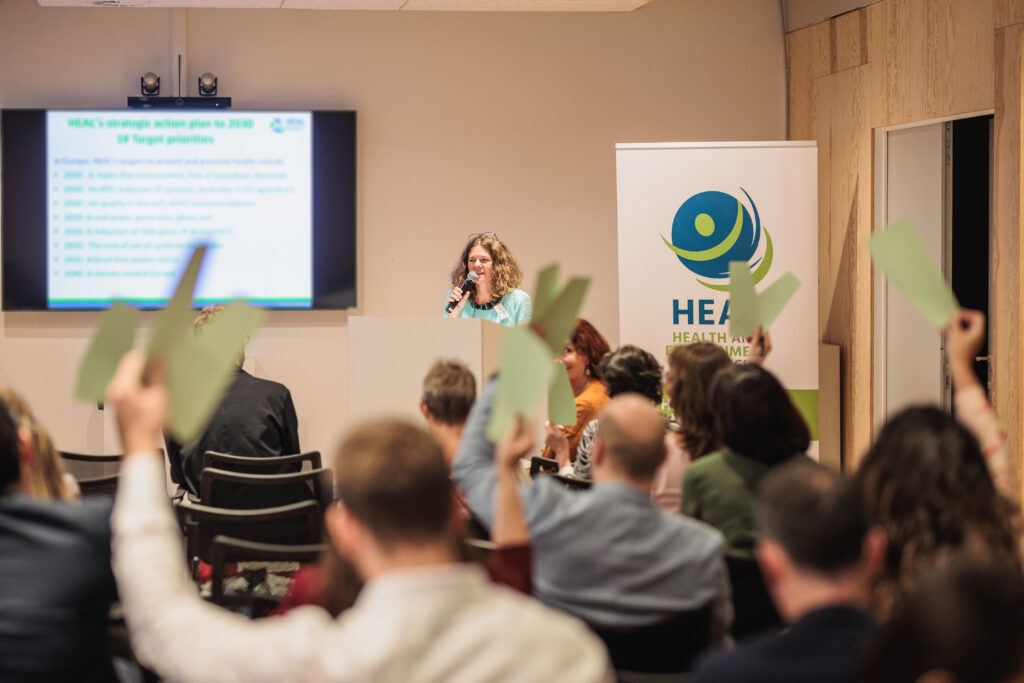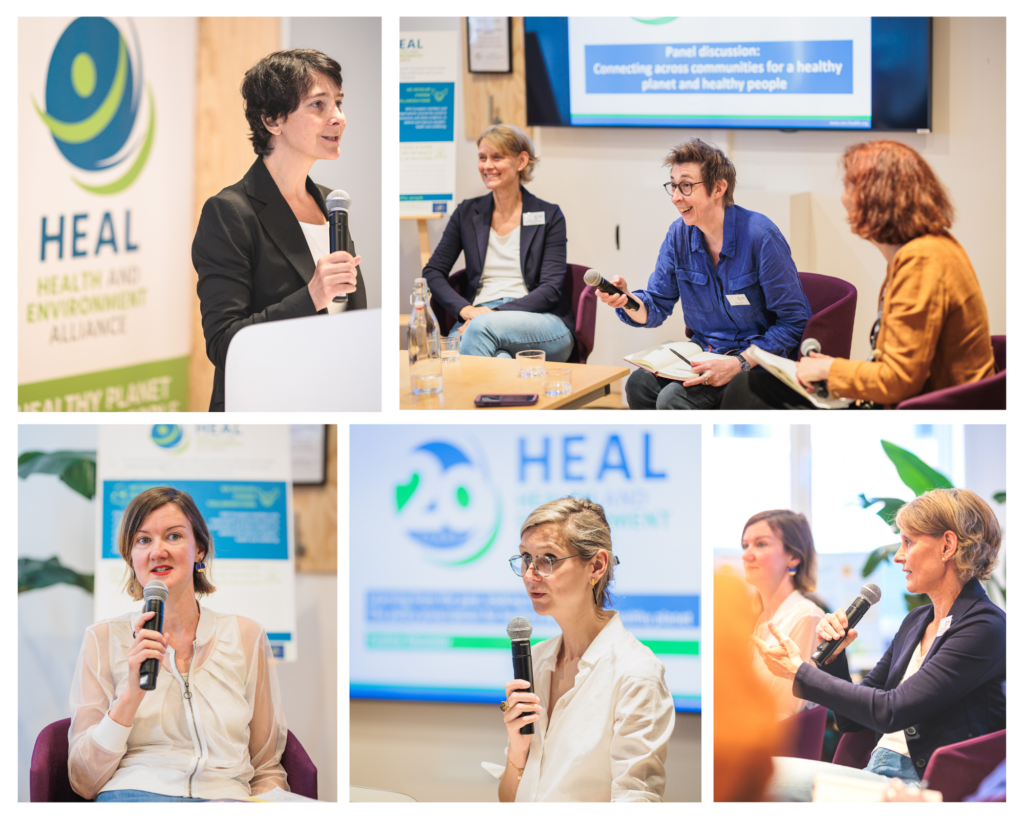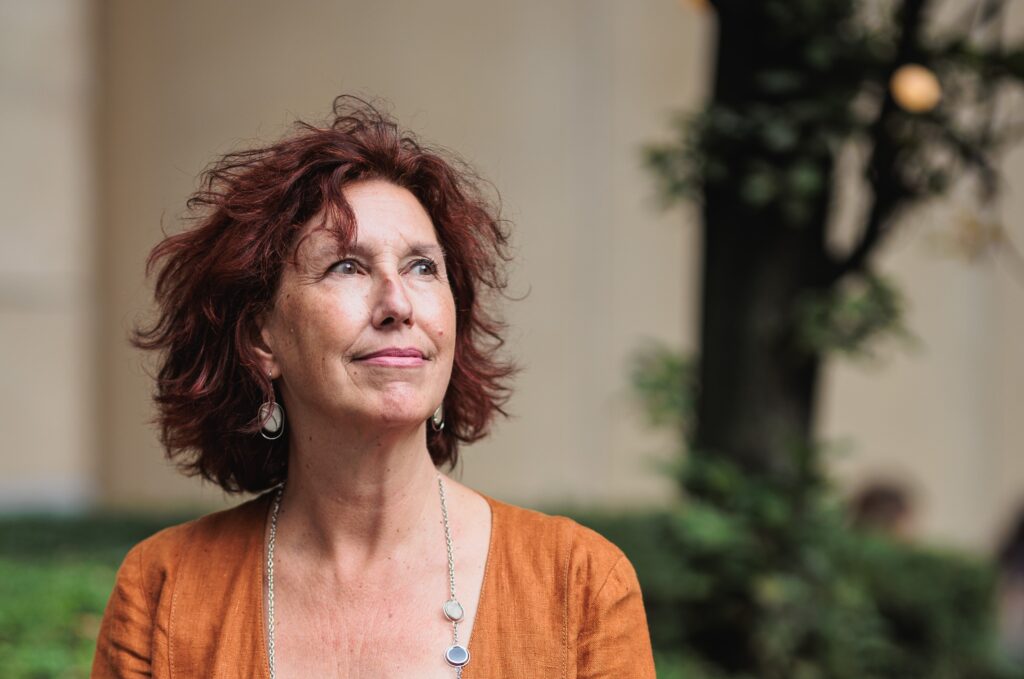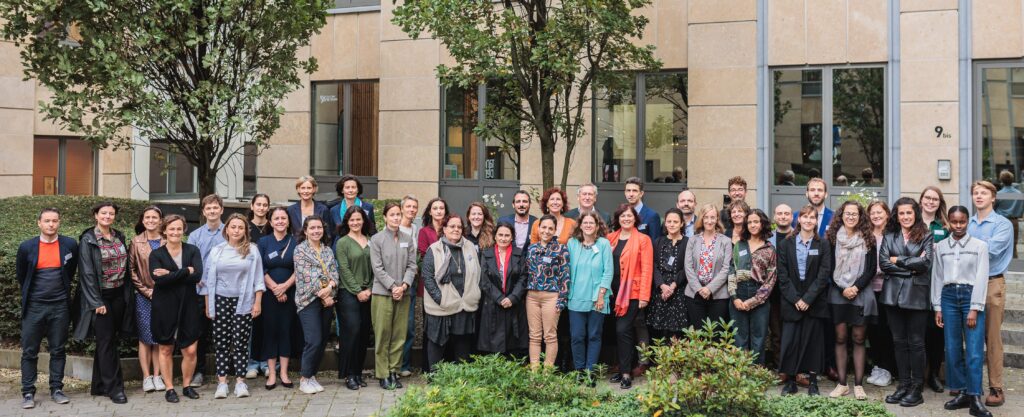The Green 10 coalition, which HEAL is a part of, encourages the President of the European Parliament Roberta Metsola upon her re-election to put the climate, biodiversity and pollution emergency at the forefront of her tenure.
In October 2023, HEAL hosted its annual General Assembly in Brussels gathering members and partners together. This year was a special occasion to celebrate the achievements in protecting people’s health against pollution and climate change since the organisation’s inception 20 years ago, and to look ahead.
HEAL’s Executive Director Génon Jensen opened the event by remarking on the importance of collaboration with members and partners to achieve policy goals:
Our alliance brought together passionate people working in the secretariat, within our membership and our partners, and grew – from six founding members and a secretariat with only a few team members in 2003 to over 80 member organisations in 2023 and over 20 staff, in Brussels and other European locations. There is now a dedicated health sector in Europe and globally active on environment and climate policies.
HEAL’s vision is a world in which today’s and future generations can benefit from a clean environment to enjoy long and healthy lives.To achieve a healthy planet for healthy people, HEAL will continue ensuring EU-policies take into account health-centred and science-based information, and that HEAL’s members are informed and empowered to drive the environmental health agenda on a national level.
 Image: Anne Stauffer, HEAL’s Deputy Director at the 2023 General Assembly
Image: Anne Stauffer, HEAL’s Deputy Director at the 2023 General Assembly
To mark the 20th anniversary occasion, Elena Montani, Member of Cabinet of EU Environment Commissioner Virginijus Sinkevičius, and Evelyne Decoster, Environment Advisor to the Belgian Federal Minister of Climate, the Environment, Sustainable Development and Green Deal, gave speeches at the event.
A panel discussion with Dr Barbara Hoffmann, Professor of Environmental Epidemiology at the University of Düsseldorf and ERS Advocacy Council chair, Laura Sullivan, Executive Director of WeMove Europe, and Stéphane Horel, investigative journalist at Le Monde, further honed on how they’re addressing health threats from environmental pollution and climate change in their work, and how to better connect across communities. The red-thread in the discussion was prevention, both in policymaking, primary care, and research in the field of environmental health.
Dr Barbara Hoffmann pointed out: “As a medical doctor, I want to make health better, and where I see my role is not necessarily curing single patients but preventing it through reducing environmental pollution. She also discussed the general knowledge gap on the impact of pollution: “People cannot protect themselves, they in most cases don’t even know about pollution in their environment. That is why we need strong legislation.”
 Image: Clockwise from top left Elena Montani, Stéphane Horel, Barbara Hoffmann, Evelyne Decoster and Laura Sullivan.
Image: Clockwise from top left Elena Montani, Stéphane Horel, Barbara Hoffmann, Evelyne Decoster and Laura Sullivan.
Stéphane Horel, who worked on EDC regulation, co-authored the ‘Monsanto Papers’, and took part in the Forever Pollution Project discussed the importance of awareness raising: “People don’t have a choice in what is happening – that is my main drive, the issue of absence of consent when it comes to environmental health.”
Welcoming new HEAL members and poster presentations
Three new member organisations were welcomed into the alliance. The French not-for-profit organisation La Mutuelle Familiale (LMF) provides fair and sustainable health insurance to over 200,000 policyholders. With a keen interest in environmental health, LMF set up an Environmental Health Foundation which promotes applied medical research and raises awareness on ubiquitous pollutants. The Polish Society of Allergology brings together people who work in experimental- and clinical allergology and promotes the professional development of doctors in the field, with over 1,500 members and 14 regional branches. It publishes the Polish Journal of Allergology. The Health City Institute (HCI), is a public health institute based in Italy with over 300 members and operations in 14 Italian cities. HCI studies health determinants in cities and recommends policies and best practices, with a particular focus on noncommunicable diseases and the environment.
Image: HEAL secretariat and members at the General Assembly
A poster networking session gave HEAL Members an opportunity to present their work. Réseau Environnement Santé from France showcased their interventions in schools and monitoring pollutant levels with accessible biomonitoring tools such as wristbands, which were great for both getting data and raising awareness on exposure to phthalates. The Sociedade Portuguesa de Saúde Ambiental from Portugal is engaging students to create videos on the occasion of the World Environmental Health day. The brand new HEAL member Mutuelle Familiale is organising a symposium at the French Senate on pesticides and asbestos, together with other mutual health insurance funds. The Serbian civil society organisation Safer Chemicals Alternative, based in Belgrade, Serbia, developed chemical sensitive criteria for public procurement based on existing EU requirements, and utilised video tutorials to share knowledge on providers that fulfil green criteria. ISDE Italy, raised awareness on the effect of plastic on health by sharing informative posters with primary health care providers, who in turn can share the information with their patients. The Institute of Public Health in Serbia, has been collaborating with WHO and cancer registries to build an understanding on arsenic and phthalate risks, through mapping, and relaying this information. The Brussels citizen movement BRAL, showcased how through citizen action they are simultaneously monitoring and raising awareness about air pollution, through citizen led air quality monitoring points for NO2 throughout the city.
 Image: HEAL’s Executive Director Génon Jensen
Image: HEAL’s Executive Director Génon Jensen
With an inspiring event, and the priceless and unprecedented collaboration and engagement between HEAL and its members and partners, Génon Jensen believes that we can foster a healthy planet for healthy people:
We have made an impact in putting health considerations more firmly in major environmental and climate policies over the past two decades. But our work is far from done. A growing body of evidence exists on how far-reaching the harm to health is from exposure to chemicals, pesticides and air pollution. We see an accelerating triple crisis of climate change, pollution and biodiversity loss. We certainly know enough to act, and we need to act urgently, if we are to achieve the much needed transformation in this decade. Health professionals are among the most trusted voices in society, and this voice is needed more than ever today. All of this underscores why the continued engagement of the HEAL network is essential.
Photo credits: Antoine Rassart




